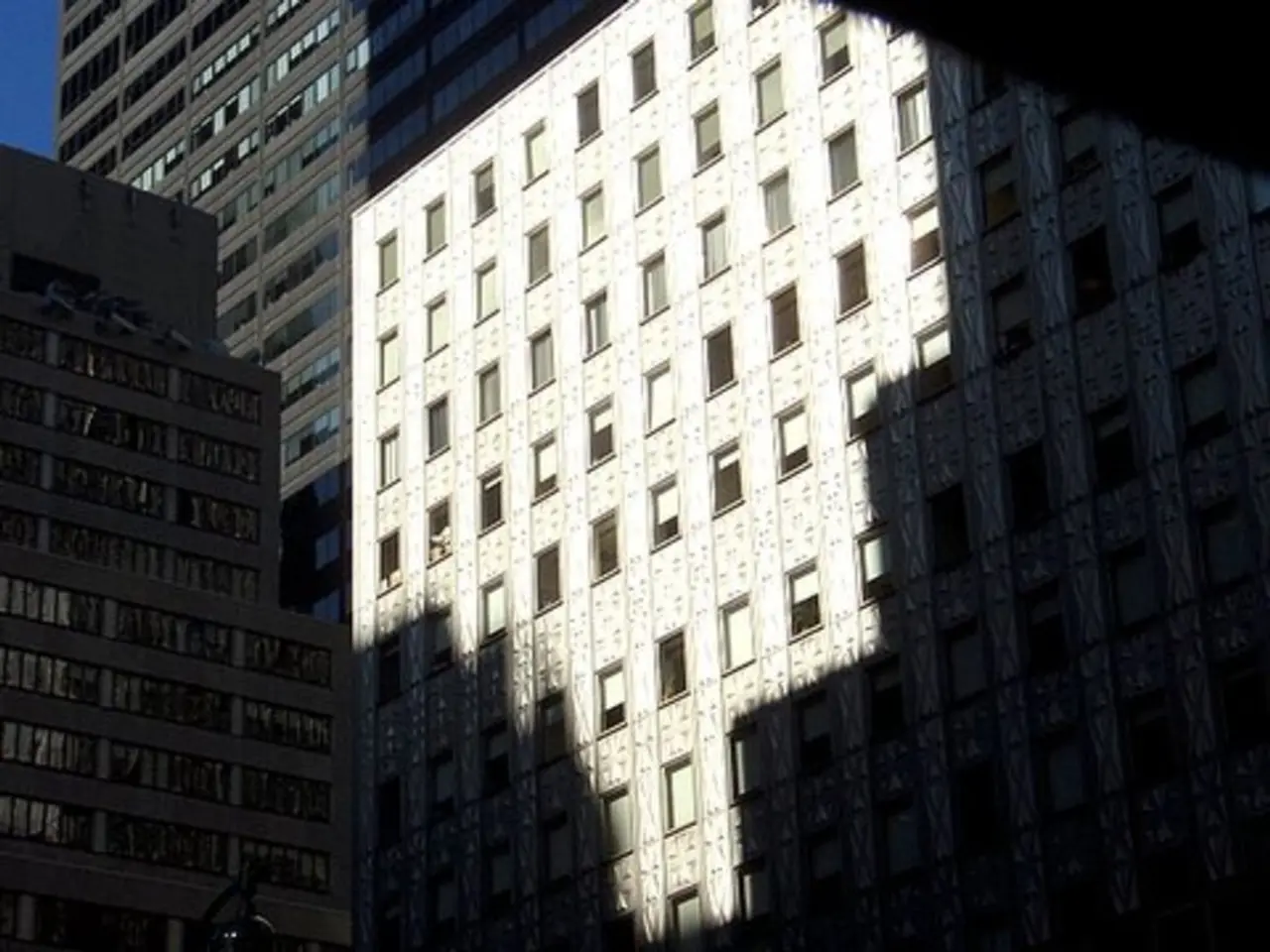Market sees a surge in significant property transactions
In a significant move, Vietnamese real estate giant Vinhomes has transferred a 25-hectare subdivision within the Vinhomes Ocean Park 3 New Urban Development Area in Hung Yen province to Singapore-based CapitaLand [1]. This transfer marks CapitaLand's entry into the residential sector in Vietnam, with plans to develop nearly 700 low-rise units across two phases under the project name The Fullton [2]. The total expected investment for this venture is approximately $800 million.
Meanwhile, in Hanoi, the real estate market continues to attract significant Foreign Direct Investment (FDI), with Japan, Singapore, and South Korea being key investors. The city's economic growth, increasing property transactions, and new high-end supply suggest that buyers would expect high-quality, well-located assets that promise good returns or strategic business advantages [3].
The potential buyers for the VietinBank Tower project in Hanoi are likely to be a mix of institutional investors, large corporations, and financial institutions. These buyers typically include banking and financial sector entities, foreign direct investors with a strong interest in Hanoi's real estate market, and private investors with capital ready for prime developments [4].
The requirements of these potential buyers would typically include prime locations, modern Grade A specifications, high security, advanced digital infrastructure, eco-friendly building standards, flexibility in usage, and strong growth prospects in rental income and capital appreciation [4].
Elsewhere in the country, the July 1 merger of Ho Chi Minh City with the former Binh Duong and Ba Ria-Vung Tau provinces marked the creation of Vietnam's first multi-centred 'megacity' model, laying the foundation for a new phase in industrial real estate development [5]. A notable deal occurred in Ho Chi Minh City with Gateway Thu Thiem JSC, a member of Huong Viet Holdings, acquiring a 42% stake in Nam Rach Chiec Company, the developer of Palm City, from Singaporean real estate group Keppel [5]. The deal was worth $104 million.
However, the real estate M&A market in Vietnam has yet to reach a true breakthrough, due to legal uncertainty and high pricing [6]. Buyers are highly selective, wanting projects with basic legal clarity, relatively clean land, or those that can be cleared in an acceptable timeframe [6].
The hospitality sector is still in recovery mode, not yet vibrant enough to drive big-ticket deals. Office and hotel assets are thriving only in large cities like Hanoi and Ho Chi Minh City, while industrial real estate has slowed due to countervailing US tariffs [7].
In a notable move, Vinaconex Tourism Development and Investment, the developer of Cat Ba Amatina in Haiphong, a 170-hectare coastal urban tourism complex, saw Hanoi Anpha Real Estate Exchange acquire a 23.06% stake, valued at approximately $94 million [8].
Despite the challenges, Can remains optimistic about the outlook for the rest of 2025, as legal bottlenecks are gradually being addressed, capital availability is improving, and overall market sentiment is strengthening [9]. The move by VietinBank to bring the VietinBank Tower project to market aligns with these new advantages in the current market, including low interest rates, improved real estate liquidity, and growing investor appetite [9]. Construction on the project commenced in 2010 but remains unfinished due to various challenges faced by the local bank.
References:
- CapitaLand to develop residential project in Vietnam
- CapitaLand to invest $800 million in The Fullton project in Vietnam
- Hanoi continues to attract significant FDI, especially in real estate
- Potential buyers for the VietinBank Tower project in Hanoi
- Gateway Thu Thiem JSC acquires stake in Palm City developer
- The real estate M&A market in Vietnam
- Office and hotel assets thriving in large cities, industrial real estate slowed
- Hanoi Anpha Real Estate Exchange acquires stake in Vinaconex Tourism Development and Investment
- Can remains optimistic about the rest of 2025
Investors in the Vietnamese real estate market, such as CapitaLand and buyers for the VietinBank Tower project, prioritize investments in prime locations with modern facilities, high security, advanced digital infrastructure, eco-friendly building standards, flexibility in usage, and strong growth prospects in rental income and capital appreciation [4, 9]. On the other hand, the real estate M&A market in Vietnam is still developing, with buyers preferring projects with basic legal clarity, relatively clean land, or those that can be cleared in an acceptable timeframe, due to legal uncertainty and high pricing [6].




